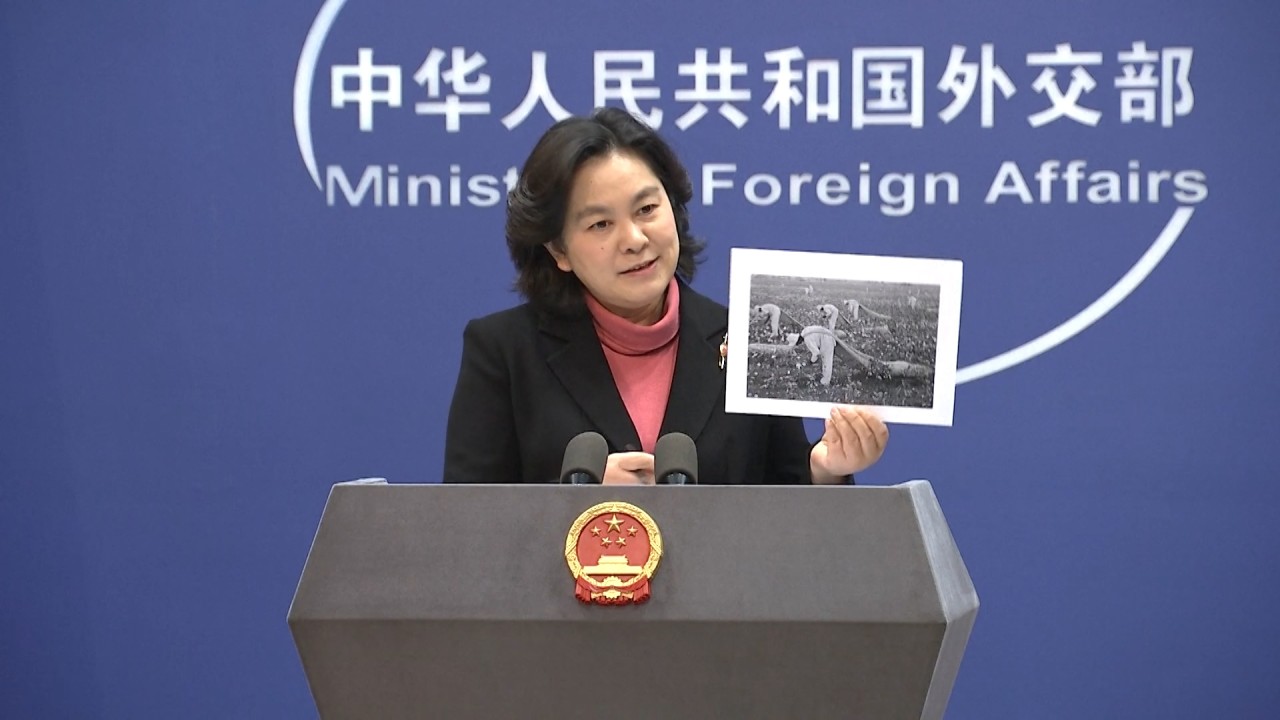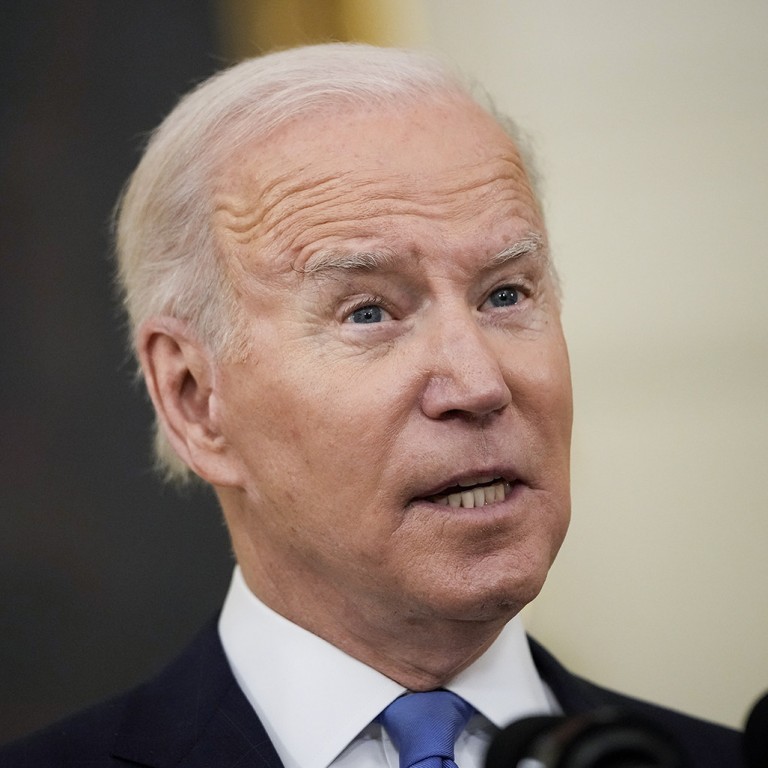
US President Joe Biden signs Xinjiang forced-labour bill into law
- The ban on imports from Xinjiang will go into effect in June, with disruptions to the global supply chain likely
- Law creates a ‘rebuttable presumption’ that all goods sourced wholly or in part in Xinjiang are tainted by the use of forced labour in their production
In a brief statement on Thursday, Biden thanked congressional leaders and the bill’s authors for their “leadership” on the overwhelmingly bipartisan legislation, but he did not host a signing ceremony as presidents sometimes do with high-profile bills.
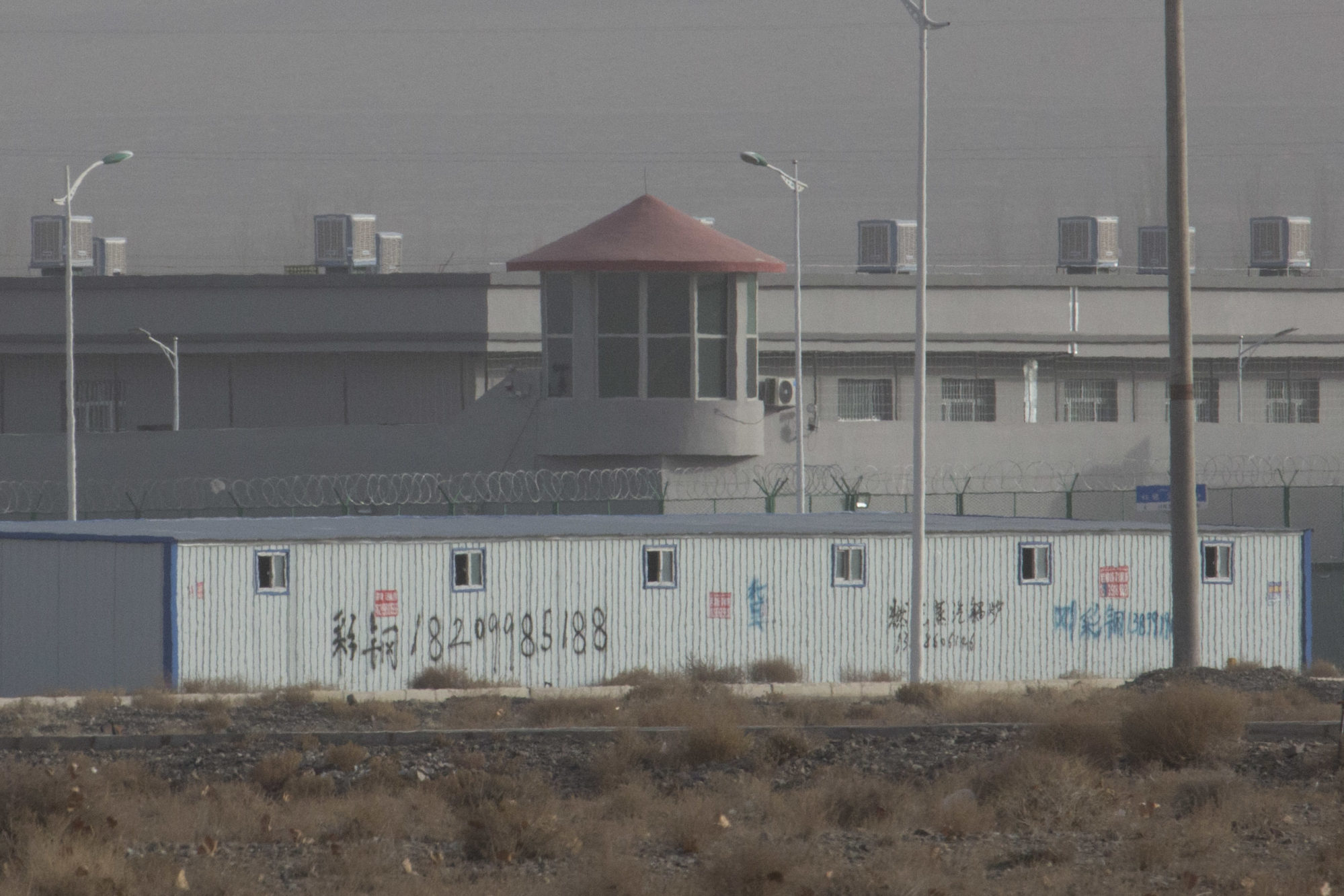
The new law creates a “rebuttable presumption” that all goods sourced wholly or in part in Xinjiang are tainted by the use of forced labour in their production – charges that Beijing denies. The ban will go into effect in June.
Once the ban is in place, companies will be able to appeal the prohibition only if they can provide “clear and convincing evidence” that their supply chains are free of the involvement of forced labour.
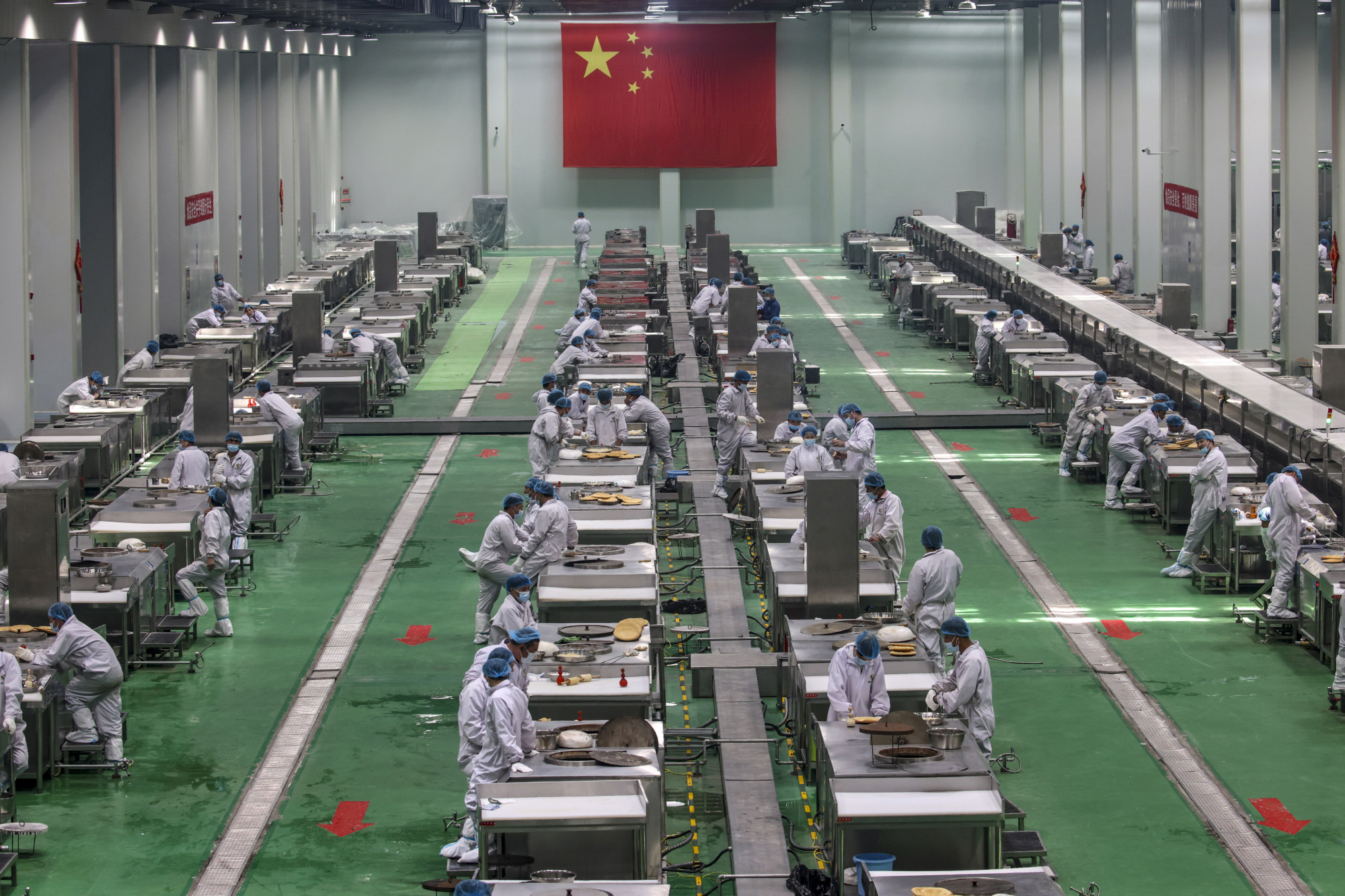
Experts say that standard will be close to impossible to meet, given the inability of independent auditors to gain unrestricted access to the region.
The law also directs the US government to sanction any individual in China deemed responsible for rights abuses related to forced labour.
It adds to growing international scrutiny of China’s policies in Xinjiang, dovetailing with criticism of the Winter Olympic and Paralympic Games in Beijing in early February; the US and some of its allies are refusing to send officials in protest.
“As the Chinese government tries to whitewash their genocide and claim a propaganda victory with the upcoming Olympics, this legislation sends a powerful, bipartisan message that the United States will not turn a blind eye,” Senator Jeff Merkley of Oregon, the bill’s lead Democratic sponsor in the Senate, said on Thursday.
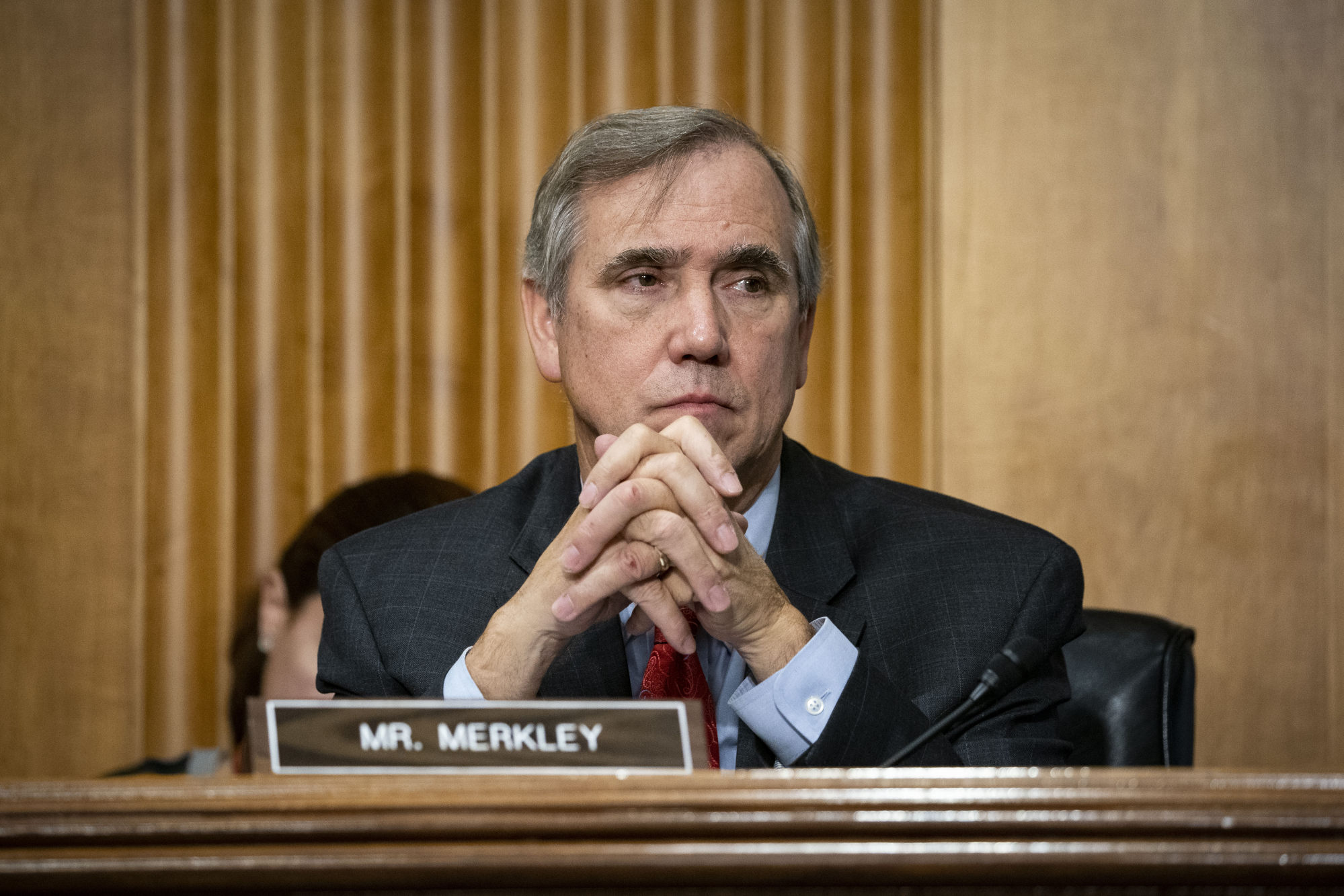
The move to ban all Xinjiang imports follows a spate of US government actions to punish China over its policies in the region, including sanctions against officials, blacklisting of numerous Chinese companies and other trade measures.
Senator Marco Rubio, the Florida Republican who was the bill’s author, called its signing into law the “most important and impactful action” taken by the US to combat forced labour in China to date. “It will fundamentally change our relationship with Beijing,” he said.
The ban is an outlier among US import restrictions, which typically limit goods based on specific product types or individual suppliers, rather than entire regions.
The import ban will “reverberate through global cotton and solar markets”, researchers at the Peterson Institute for International Economics (PIIE) wrote.
Xinjiang is a dominant player in international supply chains of cotton; polysilicon, a material critical to the production of solar panels; and agricultural goods like tomatoes.
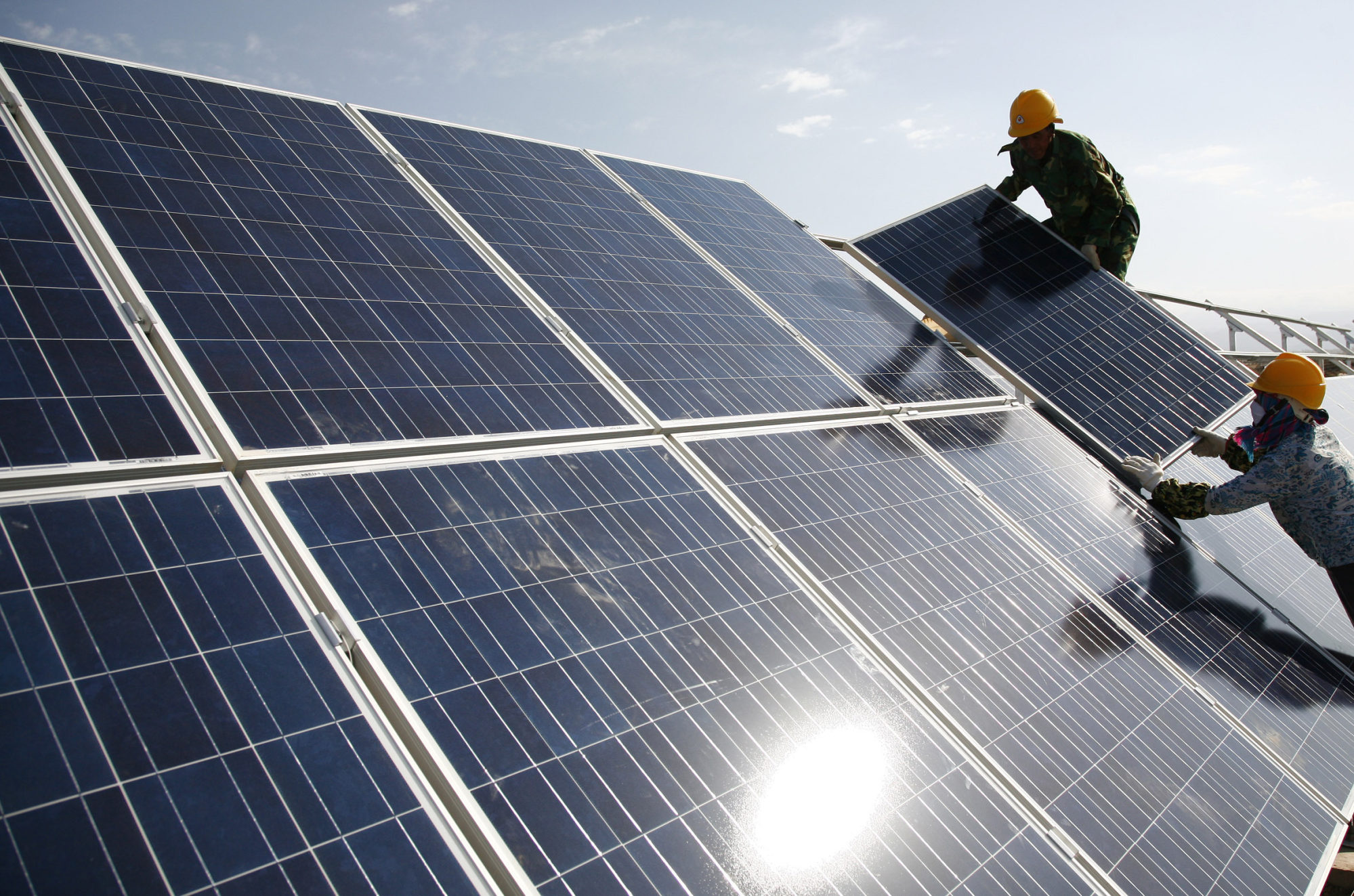
Even with existing federal restrictions on cotton and tomato imports from Xinjiang, exports from the region to the US more than doubled in the first quarter of 2021 to some US$64 million. That figure does not account for goods shipped to the US from other locations that use raw materials sourced in Xinjiang.
Even before the bill’s enactment, US companies with operational ties to Xinjiang had begun extricating their supply chains from the region, as legal and reputational risks mount.
“[We] hope the relevant company can respect facts and distinguish right from wrong,” Chinese foreign ministry spokesman Zhao Lijian said of Intel on Thursday.
Xinjiang’s solar industry needs a rare form of quartz – and the US is selling
Afterwards, White House press secretary Jen Psaki condemned Beijing’s “weaponisation” of its markets to stifle support for human rights, and said that US companies “should never feel the need to apologise for standing up for fundamental human rights or opposing repression”.
Psaki also shrugged off a question about why Biden opted to sign the forced labour bill behind closed doors: “He signs bills … off camera sometimes, sometimes on camera,” she said. “We support the bill, and obviously we’ve been leading the effort in the world to call out human rights abuses.”
While the bill was a “constructive move”, the PIIE researchers noted that it would not address new allegations of forced transfer of Uygur labourers out of Xinjiang to other parts of China.
And while rights advocates have hailed the law as a valuable tool to crack down on suspected forced labour, they stress that its efficacy will hinge on the rigour with which the US Customs and Border Protection agency enforces it.
The customs agency has six months to develop an enforcement strategy, and during that time, a federal task force on forced labour will hold hearings and seek public comment on how best to prevent goods involving Xinjiang from entering the US.
China has assailed the legislation as a case of “economic bullying” under the pretence of human rights and has vowed countermeasures, but has yet to indicate what form any retaliation might take.
Previous US efforts to hold Beijing accountable for human rights abuses have seen the Chinese government respond with sanctions on individual lawmakers and congressional bodies.
Following the bill’s enactment on Thursday, Liu Pengyu, a spokesman for the Chinese embassy in Washington, said the new law was a “severe violation of international law and norms of international relations, and a gross interference in China’s internal affairs”.
“The US is advised to immediately correct its mistakes and stop using Xinjiang to spread lies, interfere in China’s internal affairs and contain China’s development,” Liu said in a statement. “China is determined to defend its national interests and will respond further in light of the development of the situation.”


